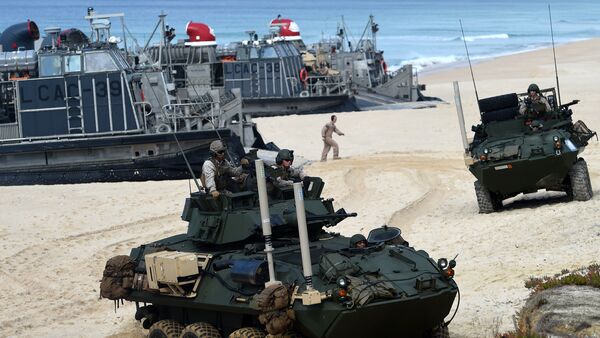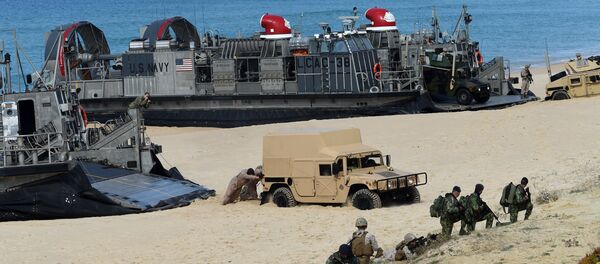According to Carolyn Eisenberg, the drills "reflect the mounting tension between Russia and the United States, it is an obvious attempt to display military power at a time of heightened rivalry."
Eisenberg said that, whether or not these exercises destabilized the geopolitical situation in any immediate sense, they contributed to an atmosphere of fear and belligerence on both sides.
She added that peace activists in the United States had long believed that NATO expansion was a mistake.
"We think that US policy should be aimed at the demilitarization of Europe, rather than increased military activity on either side. Whether in the Middle East or on strictly European matters, the need of the hour is for a greater emphasis on diplomacy and a renunciation of the use of force," she pointed out.
NATO-Russia relations deteriorated sharply in 2014, after Crimea joined Russia and fighting broke out in eastern Ukraine. The alliance accused Russia of meddling in the Ukrainian conflict and began to reinforce its presence in Eastern Europe, implementing a plan that includes setting up six new command and control units in Poland, Romania, Bulgaria, Lithuania, Latvia and Estonia.
Russia has repeatedly dismissed the Ukraine-related accusations and stated that NATO's increased activities near the country's borders undermine regional and global stability.
The US-led drills triggered anti-NATO demonstrations in Spain, Portugal and Italy in October.


